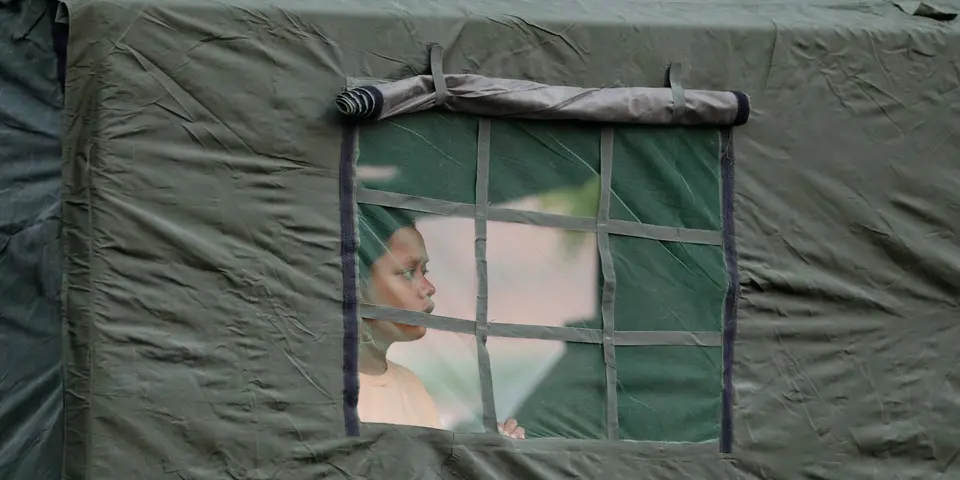
Southeast Asian Lawmakers Condemn Myanmar Military’s Obstruction of Earthquake Relief Efforts
April 03, 2025

JAKARTA, 2 April 2025 – The ASEAN Parliamentarians for Human Rights (APHR) unequivocally condemns the Myanmar military’s obstruction of critical earthquake relief efforts and its continued attacks on civilians amid a humanitarian catastrophe.
The devastating 7.7-magnitude earthquake that struck central Myanmar on 28 March has caused catastrophic destruction and loss of life. As of 2nd April 2025, the death toll has already exceeded 3,000, with thousands more injured and displaced. Yet, despite the desperate need for humanitarian assistance, reports indicate that the military junta is blocking aid, enforcing curfews that hinder search and rescue efforts, and continuing airstrikes in affected areas.
International aid has begun arriving, with China, India,Thailand, the United States, Japan, New Zealand, Australia, South Korea, Spain, Israel, Russia, Vietnam, Singapore, Malaysia, Indonesia, the Philippines and the European Union, providing financial assistance, rescue personnel, and essential supplies. However, the military’s grip on aid distribution is preventing it from reaching those in urgent need.
Local responders—civil society groups, ethnic resistance organizations, and grassroots networks—are best positioned to provide timely assistance, yet they are being obstructed at every turn.
“The military junta is once again using a humanitarian crisis to assert its authority at the cost of thousands of lives,” said Charles Santiago, APHR Co-Chairperson and former Malaysian MP. “Blocking aid, imposing curfews that prevent people from saving their loved ones, and continuing military offensives in affected regions are not just inhumane—they are crimes against humanity.”
Sagaing Region, the epicenter of the earthquake, has been a stronghold of resistance since the 2021 coup. It has suffered relentless military attacks, including airstrikes that have killed hundreds of civilians. Now, with entire communities in ruins, the junta is blocking roads, restricting relief efforts, and even arresting young men in earthquake-stricken areas for forced conscription into its ranks.
“There is no justification for military airstrikes in the aftermath of a natural disaster,” said Rangsiman Rome, APHR Board Member and Member of the House of Representatives of Thailand. “The world must act urgently to stop this junta from compounding the suffering of the Myanmar people. We need swift, direct humanitarian aid that bypasses the military’s control.”
While international rescue teams have arrived in Naypyidaw, their access to the hardest-hit areas remains uncertain. Reports suggest that aid is being funneled through Yangon and Naypyidaw, far from the devastated regions, raising serious concerns about its equitable distribution.
Adding to these concerns, Myanmar’s junta has barred foreign media and journalists from accessing affected areas. With local reporters facing severe restrictions, this deliberate suppression of information raises questions about the junta’s transparency and accountability. The lack of independent reporting not only conceals the true scale of the disaster but also limits the global response, potentially exacerbating the crisis and increasing the number of casualties.
“By blocking foreign journalists and restricting local reporters, the junta is not only hiding the true scale of the disaster but also silencing the voices of those in desperate need,” said Wong Chen, APHR Board and Member of Parliament of Malaysia. “This deliberate suppression of information is an attempt to control the narrative while people suffer in the shadows. This can not be acceptable. We demand transparency and independent access to the affected areas.”
Myanmar’s citizens have endured over four years of systematic violence, displacement, and humanitarian neglect. As in previous crises, local responders are the first on the ground, risking their lives to deliver aid while the military remains an active threat to their safety. The international community must not allow history to repeat itself.
“We call on the Myanmar junta to immediately cease hostilities and grant unrestricted humanitarian access to all affected areas,” said Mercy Chriesty Barends, APHR Chairperson and Member of the House of Representatives of Indonesia. Furthermore, APHR calls upon ASEAN member states and the broader international community to:
-
Demand that the State Administration Council (SAC) immediately halt airstrikes, violence, and other atrocities to ensure the safe distribution of humanitarian aid to affected communities.
-
Ensure that aid efforts are coordinated directly with local civil society organizations, ethnic administrations, and the National Unity Government (NUG) to guarantee effective and impartial distribution of assistance.
-
Closely monitor the situation and hold the military accountable for any actions that violate international humanitarian law.
Arlene Brosas, APHR Board Member and Member of the House of Representatives of the Philippines, emphasized, “The people of Myanmar are facing unimaginable hardship. They need more than words—they need urgent and decisive action. APHR stands in full solidarity with affected communities and remains committed to advocating for their rights, safety, and dignity in the face of both natural and man-made disasters.” #
ASEAN Parliamentarians for Human Rights (APHR) was founded in June 2013 with the objective of promoting democracy and human rights across Southeast Asia. Our founding members include many of the region's most progressive Members of Parliament (MPs), with a proven track record of human rights advocacy work.